Things you should know to take better care of your parents’ health
More than 70% of elderly people live with their descendants (statistics from the Ministry of Health in 2018), but up to 50% of elderly patients are found to be malnourished after hospitalization. Do you really care about your parents’ nutrition status?
The elderly have weak health, often suffer from chronic diseases, poor digestion, frequent aching, memory loss…. Sometimes they forget to eat and drink water, making their health worse. Impairment of health makes the quality of life and spirit of the elderly “plummet”, creating more anxiety for family members and sometimes becoming a burden on society.
-
Although we know that the aging process is inevitable, if you want your parents to “age healthily” from now on, you need to care about them with the scientific methods in your parents’ nutrition, including:
Develop a balanced and appropriate diet for the health of parents
Compared to 25-year-olds, the menu intake of 60-year-olds decreased by 20%, and those over 70 years old were 30% less. Ensuring a sufficient demand and balance of nutrients including Protein, fat, starch, vitamins, minerals, water and fiber.
Regarding the diet of the elderly, it should be noted: Divide meals into several small meals, creating a fun and comfortable atmosphere. When eating, need to chew slowly chew food thoroughly. Should eat plant foods such as sesame, peanuts, beans, green vegetables and ripe fruits, eat less red meat, more fish and shrimp. Process steamed well-boiled dishes to replace baked fried dishes. You should change the menu regularly to avoid monotonous meals so that the meal will be more delicious. Cooked dishes are soft, finely chopped, stewed carefully to suit weak teeth and support digestion. Do not eat too full, especially at night, after eating, sit or walk gently for 30 minutes, which will help the stomach to mix food and digest easily.
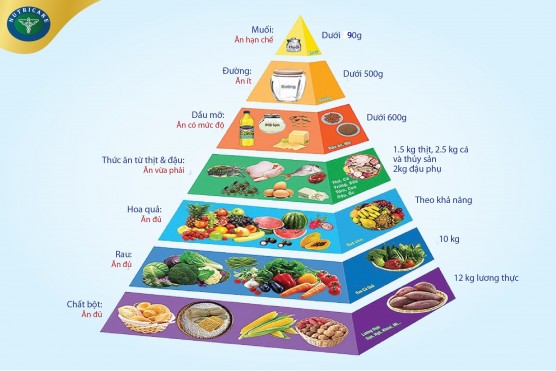
Nutritional pyramid in average 1 month for the elderly
Reduce red meat, fat, and salt
In terms of protein, your parents need 60-70 grams/day, of which animal protein accounts for 30% of the total. The elderly should eat less meat, more calcium-rich foods such as fish, shrimp, crab instead (100g shrimp contains 910 mg of calcium, 100g of crab contains 5040 mg of calcium). Use plant-based proteins such as beans, sesame peanuts, and tofu because they are high in fiber that helps in releasing cholesterol levels. Limit eating animal organs and the brain. Should eat at least 3 meals of fish per week, 3 eggs per week, and eat more yogurt (easy to digest and beneficial for digestion).
Fat should be eaten including both vegetable oils and animal fats; the percentage of vegetable fat accounts for 35% of the total fat. Vegetable oil is good for people with high blood pressure, cholesterol-free and less saturated fatty acids (less than 40%) than animal fat.
Meat on average does not exceed 1.5 kg per month, fat/oil less than 600g, sugar less than 500g per month.
Also, eat foods that are high in salt, such as pickles. Limit foods and drinks that cause insomnia such as coffee and tea. Limit salt intake to less than 3 grams of salt per day, because high salt intake is linked to high blood pressure.
Eat more beans, peanuts, sesame, and fish
In the elderly, protein digestion and absorption are poor, so protein deficiency is easy to occur. Beans, peanuts, sesame and fish are high in protein, in addition, they are rich in oils that help prevent cardiovascular diseases.
Eat 2-3 meals a week of fish. Beans, peanuts, sesame, and fish are effective in preventing and combating cardiovascular diseases; Tofu also works to prevent cancer.
Eat more fresh vegetables and ripe fruits
Remember to eat more vegetables to have fiber to stimulate bowel movements, avoid constipation. The fiber in vegetables also acts as a broom that sweeps the excess fat out in the stool, helping the body to prevent atherosclerosis. Fresh vegetables and ripe fruits also provide very important nutrients for the elderly, vitamins and minerals.
Recommended dietary intake for fiber is 25g / day, especially soluble fiber works to reduce cholesterol and blood sugar, it is good for people with diabetes and hypertension. Elderly people often suffer from osteoporosis and lack of vitamins and minerals, so they need to supplement by eating green vegetables and fruits rich in vitamins and minerals, the recommended amount is 300g of green vegetables and 100g of fruit.
Drink enough water as needed
Adults often drink less water due to fear of urinating a lot and insomnia. Water helps with better digestion and eliminates body waste. Drink from 1.5-2 liters of water / day, and actively drink water without waiting for thirst to drink. Drink heart-healthy green tea and other sedative drinks such as lotus seeds, lotus tea …
Slowing down the aging process and maintain a healthy weight with light daily exercise. 30 minutes of exercise every morning, a short rest or sleep for 15 minutes at noon time, and 30 minutes walking in the evening will help to sleep better. Walking is the best exercise, suitable for the elderly and can prevent arteriosclerosis, and improve bone pain.
- 2 glasses a day help to keep bones strong and healthy, parents enjoy life happily
However, adding many foods at the same time will burden the digestive system of the elderly. Therefore, you can choose a more convenient solution by adding 1 glass of Nutricare Gold that contains all of the above essential nutrients to enhance your parents’ daily health. Help your parents build appropriate nutrition, keep a comfortable spirit, do healthy exercises which are suitable for each person’s stature and age to have a better life expectancy. The aging phenomenon cannot be stopped, but if you know how to use the time to exercise, your parents’ health will improve and your family will be happier.
Source: MSc, MD. Nguyễn Văn Tiến – National Institute of Nutrition.
Thank you for leaving a review



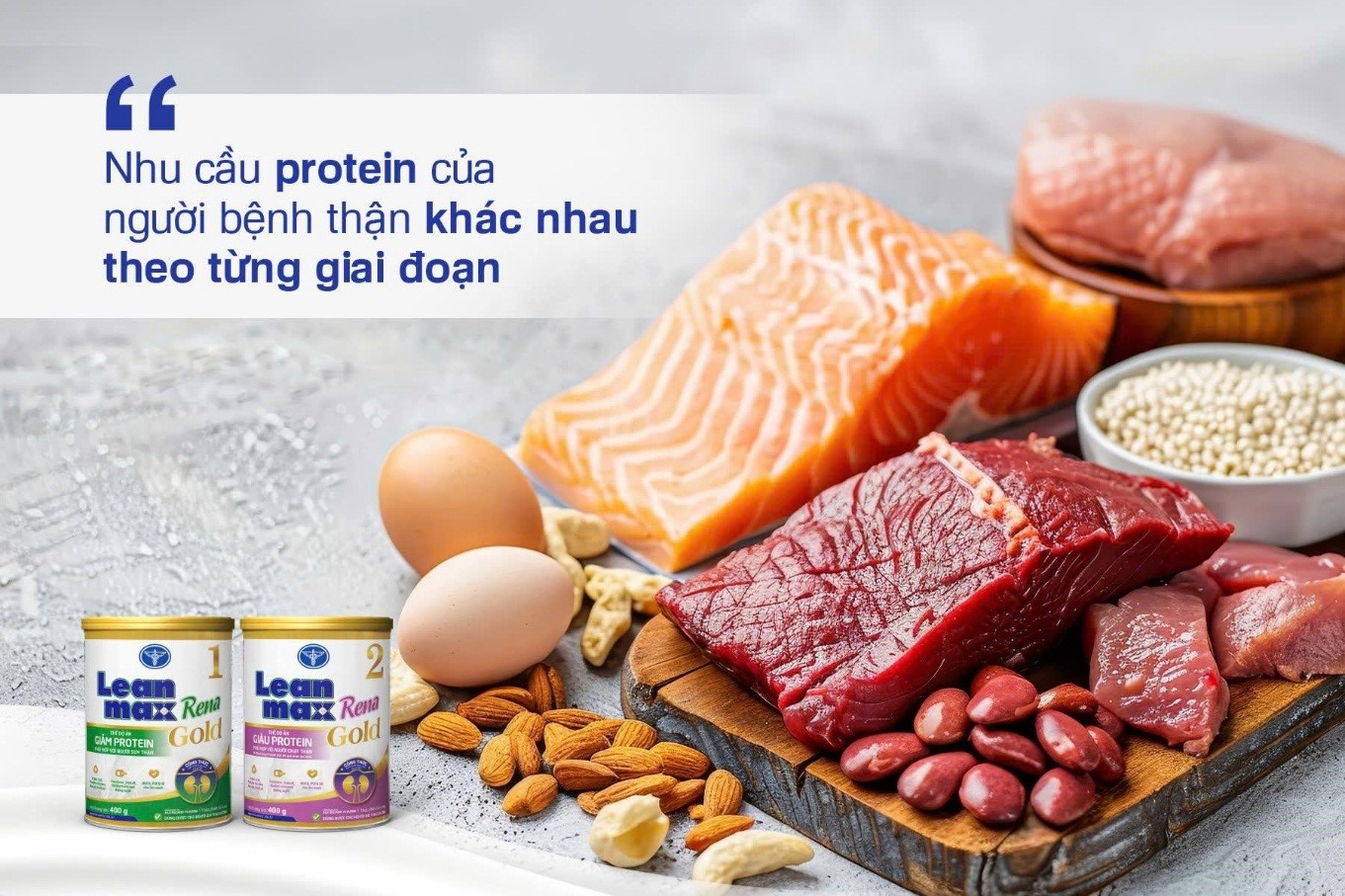
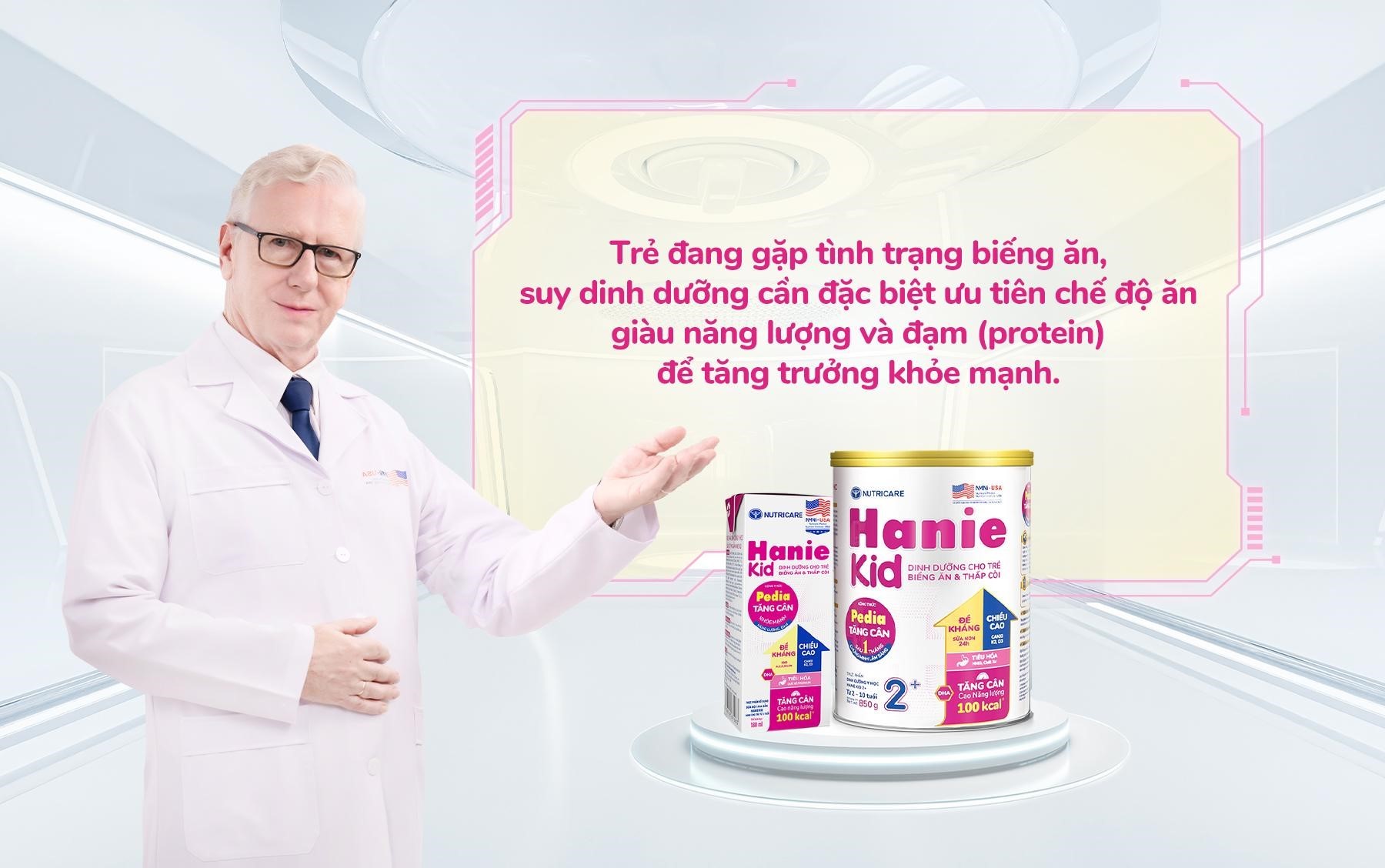


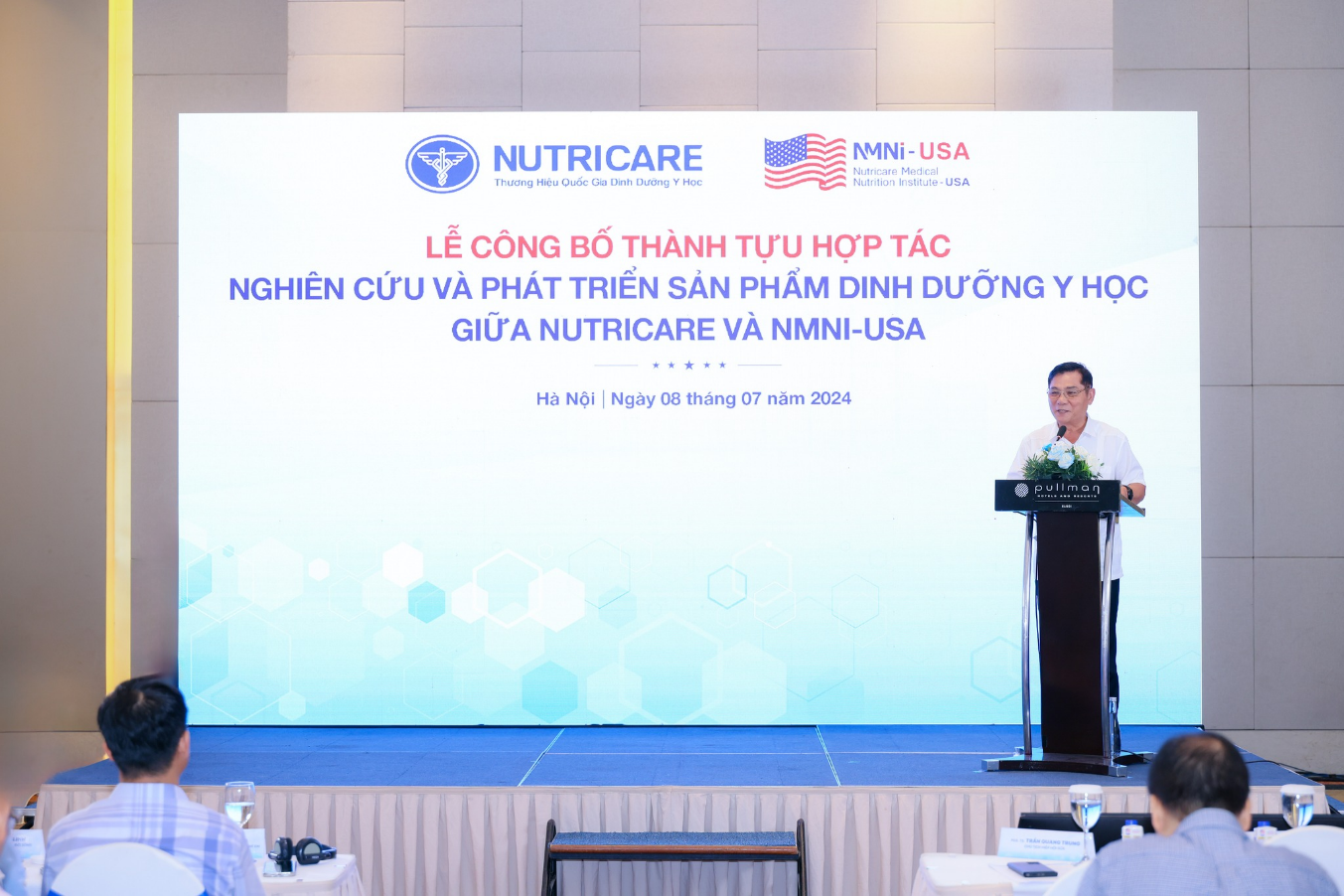

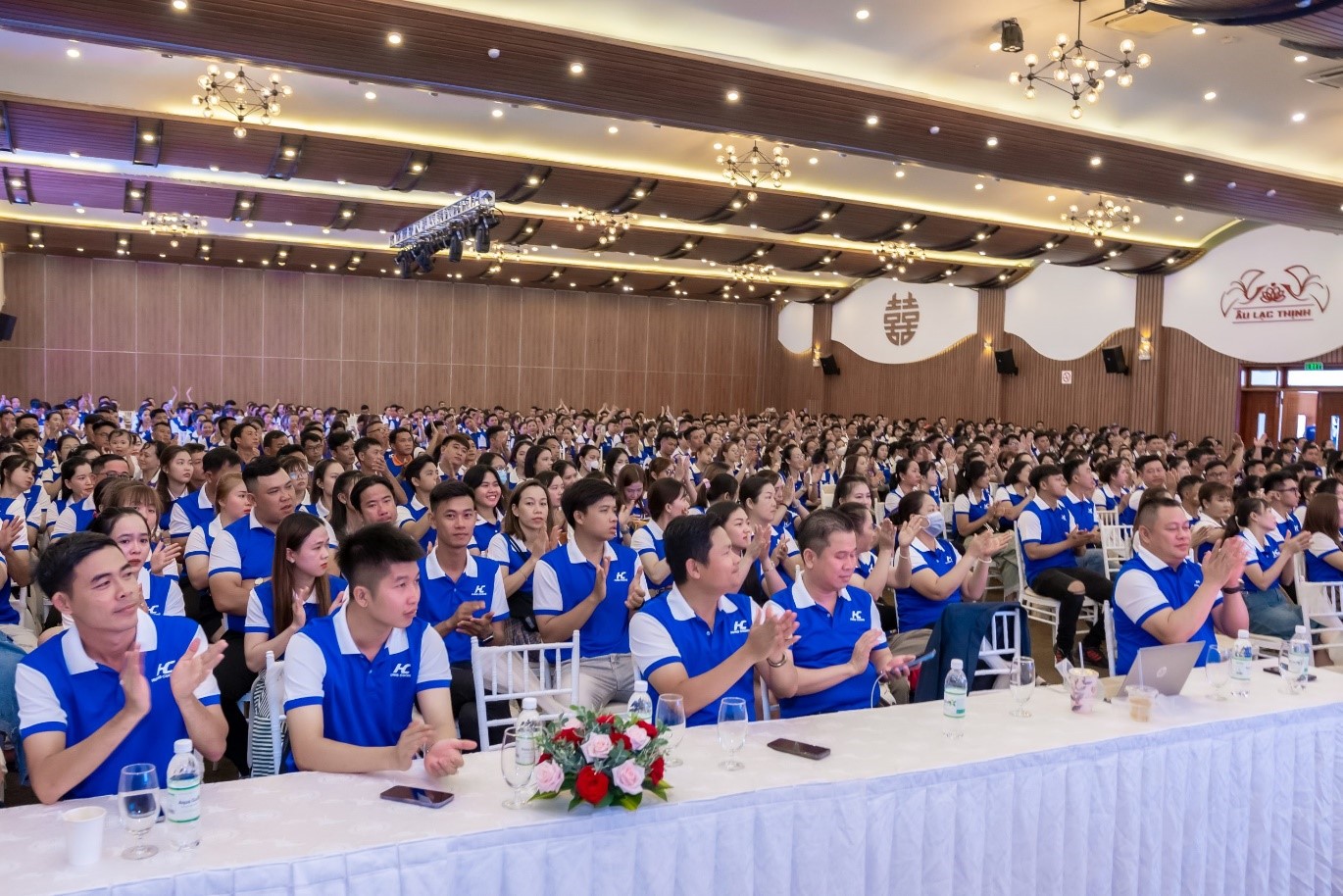



Trả lời
Email của bạn sẽ không được hiển thị công khai, các trường bắt buộc nhập được đánh *